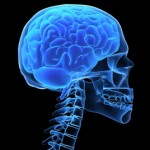
A Concussion is a Brain Injury
What is a Concussion?
Concussions are a type of traumatic brain injury (TBI) caused by a blow or jolt to the head. The injury can range from mild to severe and can disrupt the way the brain normally works.
An athlete does not need to lose consciousness to sustain a concussion. You cannot see a concussion, but you might notice some of the symptoms right away. Other symptoms can show up days or weeks after the injury. It is best to see a health care professional if you think you might have a concussion. An undiagnosed concussion can affect your abilities at school or work and in everyday activities.
Signs and Symptoms
- Nausea
- Dizziness or balance problems
- Double or fuzzy vision
- Sensitivity to light or noise
- Headache
- Feeling sluggish or tired
- Feeling foggy or groggy
- Confusion
- Trouble concentrating
- Trouble remembering
If You’ve Had a Concussion
- Never ignore a bump to the head
- Tell your coach or teammates
- Ask to be taken out of the game
- Pay attention to physical changes
- Watch out for thinking problems
- Talk to your parents or teachers about the troubles you are having
- See a health care professional
- Get plenty of rest
- Return to practice and play only after your brain is healed and your health care professional says it’s okay
When will I get better?
Your concussion symptoms can begin to decrease in the first few weeks/months depending on the severity of your injury. You may notice more difficulty in some situations than others. You might get tired after reading, studying or watching TV. It may be harder to do two things at once, such as talking on the phone or working on the computer.
Take things slow and be patient with yourself. Do not participate in contact sports until your health care professional says its okay.
Source: Brain Injury Association
